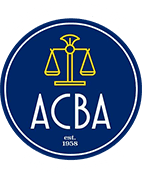
Trust Attorney Denver
Drafting Trusts For Residents Of Jefferson, Douglas, Arapahoe, & Adams Counties
Many people make the mistake of thinking that trusts are only for the very wealthy. As a result, they may never learn the many benefits associated with setting up trusts to protect wealth and assets during their lifetime and pass them along to loved ones after death.
In addition, a trust can offer significant tax advantages and provide a more straightforward probate process. By minimizing estate taxes and avoiding the often lengthy probate process, a trust ensures that your beneficiaries receive their inheritance more quickly and with fewer complications. Furthermore, trusts can offer privacy as they are not public records, unlike wills that go through probate court. This confidentiality can be crucial for families who value discretion in distributing their assets.
In truth, there are many different types of trusts, and they can be set up in a number of ways based on your wishes. What are trusts? What benefits can you gain from using trusts in addition to a last will and testament?
What Are Trusts? Understanding The Basics With A Trust Lawyer In Denver
A trust is a legal arrangement designed to protect wealth and assets during your lifetime and to pass them along to beneficiaries after your death or at a pre-appointed time of your choosing. There are three types of people involved in a trust:
- Settlor/Grantor: The person who creates the trust
- Trustee: The person assigned to administer the trust, like an attorney or a trusted family member
- Beneficiaries: The people (or entities) you name to inherit wealth and assets held in trust
The way a trust works is that you essentially transfer ownership of your assets to the trust. During your lifetime, you may retain use of these items, but the trust essentially owns them and is holding them until the appointed time when they will be passed along to their new owners (your named beneficiaries).
In constructing a trust, you have the flexibility to decide the terms and conditions under which the assets are distributed. For example, you may stipulate that beneficiaries reach a certain age or achieve specific milestones before accessing the assets. This level of control ensures that the assets are used as you intended, providing peace of mind that your legacy will be preserved and utilized responsibly.
The bulk of the trust is nothing more than a set of instructions for how the trust and its assets are to be managed. These instructions include how the assets are to be used in the event you become incapacitated or have passed away. This allows you the ability to continue to use property and assets throughout your life, including periods of incapacity or when you need care down the line. More importantly, trusts allow you to ensure that wealth and assets go directly to your chosen beneficiaries in the way you want them to be distributed.
Setting up trusts can be complicated, which is why it’s so important to discuss your goals and wishes with a qualified estate planning attorney like the professionals at Curtis Law Firm. This will ensure that your trust is structured according to your specific needs and unique situation.
Types Of Trusts Explained By A Denver Trust Attorney
There are a wide variety of trusts to explore, but the two main categories are revocable and irrevocable trusts. Revocable trusts protect assets while the Settlor retains control. The main benefit of the revocable trust is that it allows for changes during the lifetime of the Settlor and can be dissolved if the Settlor chooses. There is no need to register the trust or for the trust to obtain its own personal tax ID. As far as the IRS is concerned, the trust and the Settlor are the same entity. But that means items held in trust are still subject to personal taxation, just as if they weren’t in the trust.
An irrevocable trust, on the other hand, is non-modifiable (no changes can be made), must be registered, and must obtain its own individual tax ID. Since the trust is considered a separate legal entity from the Settlor, the Settlor no longer pays personal tax on items held in the trust. The trust will pay taxes on any capital gains.
In addition to the general categories of revocable and irrevocable trusts, there are specialized trusts that cater to different needs and goals. For instance, a living trust can help manage your estate while you are alive, whereas a testamentary trust is established as part of a will and becomes effective upon death. Charitable trusts enable you to support philanthropic causes while also enjoying tax benefits. By consulting with a knowledgeable attorney, you can identify the type of trust that best suits your goals and circumstances.
The Importance Of Trusts In Denver
Denver residents need to be aware of state-specific regulations that can affect the creation and management of trusts. Colorado's laws enable significant flexibility in how trusts are structured, allowing residents to optimize their estate planning strategies. This flexibility can be a major advantage in terms of asset protection and tax management. Consulting with an experienced trust attorney in Denver is essential to navigate these legal nuances effectively. They can ensure your trust aligns with your wishes and complies with local laws.
Also, Colorado's unique tax environment presents both opportunities and challenges. Although state-level estate tax does not exist in Colorado, federal estate taxes may apply, particularly for substantial estates. An understanding of these tax implications is critical to preserving the value of the estate and maximizing benefits for beneficiaries. An experienced attorney can guide you through these complexities, ensuring that your trust is not only legally sound but also economically advantageous.
How Curtis Law Firm Assists In Trust Formation
At Curtis Law Firm, our approach is grounded in personalized service and detailed understanding of each client's specific needs. We engage closely with our clients to advise them on the most suitable type of trust for their particular situation. Our legal team provides comprehensive guidance, from the initial consultation through to the creation and ongoing management of your trust, ensuring every legal and financial aspect is thoroughly addressed.
Our dedication extends beyond mere formation. We offer ongoing support to help manage and administer the trust effectively, adapting to any changes in your circumstances or relevant laws. This ongoing relationship with clients underscores our commitment to protecting their interests and achieving their financial goals with integrity and diligence. As one of Denver’s trusted legal advisors, Curtis Law Firm is committed to providing unwavering support at every stage of your trust planning journey.
Frequently Asked Questions About Trusts With A Trust Lawyer Denver
What Is The Difference Between A Will & A Trust?
A will and a trust serve different roles in estate planning. A will takes effect after your death and outlines how your assets will be distributed, while a trust can take effect during your lifetime and facilitate the transfer of property and assets both during and after your life. Trusts often avoid probate, which can be time-consuming and public, thus offering more privacy and immediate transfer of assets. Wills, however, can be simpler to create and are sufficient for smaller estates or specific types of asset distribution. Combining both instruments might offer comprehensive protection and flexibility in estate planning.
How Do Trusts Work For Minors?
Trusts are particularly beneficial for distributing assets to minors because they provide a structured framework for management until the minor reaches a specified age. A trustee is appointed to manage assets in the best interest of the child, ensuring that resources are available for education, health, and well-being. Colorado laws allow parents to specify how and when assets should be disseminated to their children, whether at different milestones or ages. This provides security, knowing that the assets are appropriately managed until the minor is mature enough to handle them independently.
Can A Trust Be Revoked Or Changed?
Revocability of a trust depends on its type. A revocable trust, as the name suggests, can be altered or terminated by the settlor at any time, provided they are mentally competent. This flexibility is a significant advantage for those who anticipate changes in asset distribution or family circumstances. Conversely, an irrevocable trust cannot be easily changed once established without the consent of beneficiaries or through a court order. The permanence of an irrevocable trust often comes with tax benefits and further asset protection, making it a strategic choice for those focusing on long-term planning and benefits.
What Happens If A Trustee Fails In Their Duties?
Trustees hold a fiduciary duty to manage the trust responsibly and in accordance with its terms. If a trustee fails to fulfill their obligations, legal actions can be taken by beneficiaries or co-trustees to address mismanagement or misconduct. In Colorado, trustees are held to high standards and must act in the best interests of the beneficiaries. If breaches occur, the courts can intervene by removing the trustee, appointing a new one, or offering other remedies to protect the trust's assets and ensure proper administration moving forward.
Why Consider Curtis Law Firm For Trusts?
Choosing Curtis Law Firm for your trust needs ensures access to seasoned legal professionals committed to personalized service. Our attorneys prioritize understanding your unique situation and objectives, providing tailored solutions that reflect your wishes while complying with legal expectations.
Our comprehensive services and ongoing support distinguish us as a trusted partner in navigating the complexities of trust management in Denver. With a focus on communication and transparency, we guide you through every step, making the process seamless and effective, thereby safeguarding your legacy for future generations.
Contact the experienced professionals at Curtis Law Firm today by calling (720) 408-7726 to learn more. Flat rates and unbundled services available.

Our Testimonials
Hear What Our Clients Are Saying
-
"He fully investigated points that needed clarification."He is very caring and makes sure you understand the complications that are involved in your case.- Laura S.
-
"Very understanding law firm also and a lawyer that cares about your case!"If it wasn’t for Cory, I don’t think my case would’ve gone good like it did.- Dania C.
-
"Overall this firm is great, they care about their clients!"Stacy was wonderful very helpful and informative. She made the whole process easy and smooth.- Shirley S.
-
"Corey and his staff especially Stacy were exceptional."They fully represent you as a client and fight for what is right and in the best interest of the children.- Frank E.
-
"Curtis Law Firm is better than 5 stars."Small enough to care and knowledgeable to know what they are doing.- Mary J.
-
"He very patiently answered all our questions (and we had a lot of them)."It was wonderful to be reassured, His office staff was courteous, and Mr. Curtis was knowledgeable, professional, but was very personable.- Shirley H.
-
"He is very knowledgeable, professional, and likeable."I have referred friends and family to him because I trust he will provide them with excellent legal representation.- Amy G.
-
"Nice smart compassionate lawyer."Very smart. Very resourceful. Addresses all options.- Jason C.

Why Choose Curtis Law Firm?
-
BiLingual Communication
We have staff members who speak Spanish.
-
Appointment FlexibilityWe make ourselves available to help accommodate your schedule.
-
Affordable Legal RepresentationWe make good legal help attainable with small retainers, payment plan options, and financing if needed.
-
Providing SupportFamily changes can be emotionally hard. We help make it easier.




